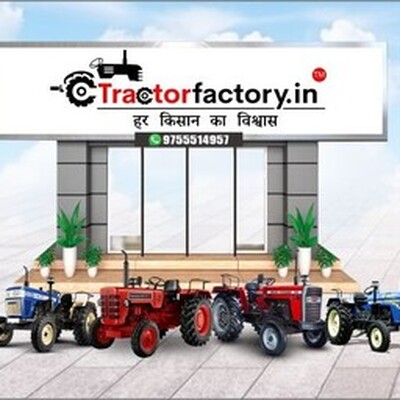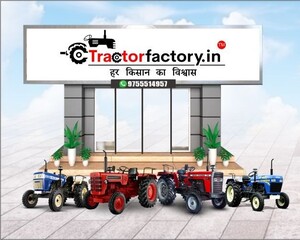Things to Notice Before Purchasing a Used Tractor
Body
Purchasing a used tractor is a significant investment and an exciting opportunity, whether you’re a farmer looking to expand your fleet or a hobbyist seeking to maintain your land. However, buying a used tractor can come with its own set of challenges if you're not prepared. To ensure you make a wise purchase, here are crucial factors to consider before sealing the deal.
- Define Your Needs
Before diving into the used tractor market, take a moment to assess what exactly you need it for:
- Purpose: Are you plowing fields, hauling materials, or mowing lawns?
- Size and Power: Determine the horsepower and size based on the tasks you intend to perform.
- Attachments and Features: Consider if you need specific attachments like loaders, backhoes, or mowers.
???? Tip: Write down your requirements to guide you through the purchasing process.
- Research Brands and Models
Not all tractors are created equal! Research various brands and models to find those known for reliability and performance. Popular brands like John Deere, Case IH, and New Holland often have strong support networks and parts availability.
???? Action Step: Join online forums or farming groups to get insights from other tractor owners about their experiences with different brands.
- Inspect the Tractor Thoroughly
Physical inspection is essential when buying a used tractor. Here’s a checklist you can follow:
- Engine Condition: Check for leaks, odd noises, and the overall cleanliness of the engine compartment.
- Hydraulics: Test the hydraulic systems for responsiveness and leaks.
- Tires: Examine tread wear; uneven wear could indicate alignment issues.
- Body Condition: Look for rust, cracks, or signs of extensive repair work.
???? Tip: Bring along a knowledgeable friend or hire a mechanic experienced in tractors to help evaluate the condition.
- Verify the Maintenance History
A well-documented maintenance history can reveal a lot about the tractor’s condition and reliability. Ask for records of repairs, maintenance checks, and any problems that have arisen. Regular maintenance often indicates a tractor that has been cared for, while inconsistent records could be a red flag.
???? Checklist: Look for oil change records, filter changes, and any major repairs.
- Check Hours of Operation
Much like a car's odometer, the hours logged on a tractor can indicate its wear and tear. While higher hours aren't necessarily bad, they do give you an idea of the tractor’s lifespan. Generally, a used tractor should have been used responsibly.
Tip: A tractor with under 5,000 hours is often considered a good find if it has been well maintained.
- Take it for a Test Drive
Just like a vehicle, taking a tractor out for a test drive can help you gauge its performance. Pay attention to:
- Starting Condition: Ensure it starts smoothly without unusual sounds.
- Operational Comfort: Test the ease of controls, seating comfort, and visibility.
- Power Delivery: Check for consistent power while operating the tractor under load.
???? Action Step: If possible, test it in the field — this is the best way to see how it performs under actual working conditions.
- Analyze the Price
Before making an offer, research current market prices for the same model in similar condition. Tools like tractor-specific websites, auctions, and local classifieds can help you understand the fair market value.
???? Tip: Don’t be afraid to negotiate, especially if you notice any maintenance issues or repairs that need to be addressed.
- Warranty and Return Policy
While most used tractors don’t come with warranties, it’s essential to ask if any remaining factory warranty exists or if the dealer offers an aftermarket warranty. A brief return policy can also provide added peace of mind.
⚖️ Action Step: Make sure to read the fine print and understand any conditions that apply.
Conclusion: Make an Informed Purchase!
Taking the time to notice these essential elements before purchasing a used tractor can save you from future headaches and financial setbacks. Remember, a well-chosen tractor can be a valuable asset that enhances your productivity for years to come.
???? Ready to Start Your Tractor Hunt?
Keep this guide handy as you embark on the adventure of finding the perfect used tractor. Happy hunting, and may you find the tractor that meets all your farming needs! If you found this article helpful, share it with fellow farmers or hobbyists looking for their dream machine!














Comments